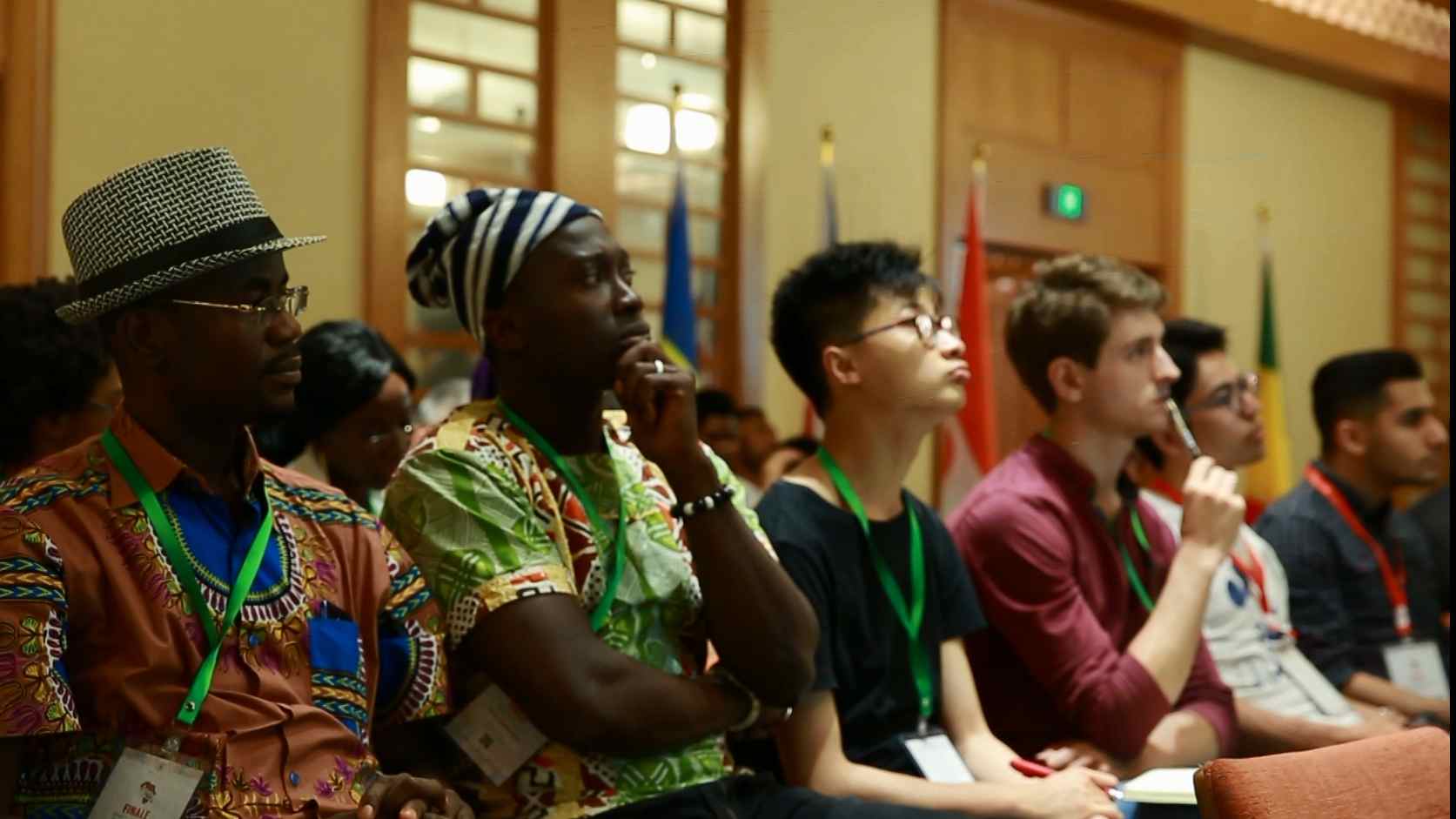
Audience members attend the 2018 Kente and Silk Africa Week in Beijing. (Photo: CGTN)
China-Africa business ties are increasingly being built on two-way ideas combining the best of both sides, with a growing number of China-based African entrepreneurs striving to turn their startup ideas into reality.
While Chinese investment in African infrastructure has long been reported on, the effects of cultural exchanges, foreign study placements and closer business ties are cultivating a new generation of young African entrepreneurs.
The recent Africa Week – a series of events in Beijing focusing on African culture, tech and business -– concluded with a pitch competition that saw young African entrepreneurs look to win 30,000 yuan (4,680 US dollars) in startup funding.
The five competing entrepreneurs came from across the continent, pitching ideas ranging from green technology to African jewelry design.
One factor that they all shared was a connection to China. Most were postgraduate students, using their experiences of living in the country to identify niche markets linking Africa and China, or business concepts that could be established in China before being exported back to the continent.
President of Shanghai-based Russell Investments Brian Ingram was on the board of judges, and set the tone for the event in his opening comments by referring to so-called exploitation within the China-Africa relationship, telling competitors it was their “job to exploit back” by valuing and utilizing the networks they built in China.
50,000 Africans were studying in China in 2015, more than the US and the UK. At the 2015 Forum on China-Africa Cooperation, China pledged to offer 30,000 scholarships to African students by the end of 2018.
The business ideas on show included a smartphone-based gamified recycling system, born from a desire to tackle litter left on Chinese university campuses, and a tourism company that set out to challenge stereotypes about Africa through VR technology, combining local on-the-ground knowledge with cheap Chinese tech to tap into one of the world’s biggest source of tourists.
One pitch, offering business services to African small and medium enterprises highlighted the huge untapped potential of SMEs on the continent. When asked how his company would compete with similar services being provided by China’s Alibaba, Aminu Ibrahim Hashim replied that local knowledge was always essential, saying “for African business, you need Africans.”
The African startup scene attracted 129 million US dollars’ worth of investment in 2016. While only a small amount compared to other regions, the startup sector is growing rapidly despite being largely ignored by Silicon Valley, according to Techcrunch.
While there was general agreement that without local knowledge major Chinese companies would struggle to succeed in Africa, it was clear that China’s mass adoption of mobile technology in recent years has been an inspiration, showing entrepreneurs how mobile payments, Fintech, gamification and e-commerce could be the spark for new business ideas.
Judges were ultimately won over by a pitch for expanding Nani’s Creations, a small-scale jewelry manufacturer with African designs, using materials sourced from Africa and sold in China.
Impressed by Ghanaian designer Yaa Anima Opare Appiah, the judges pointed to how she combined traditional African designs with a clear set of goals for doing business in China –utilizing e-commerce, obtaining a business license to set up shop in Beijing and spreading her product through word of mouth and social media.


